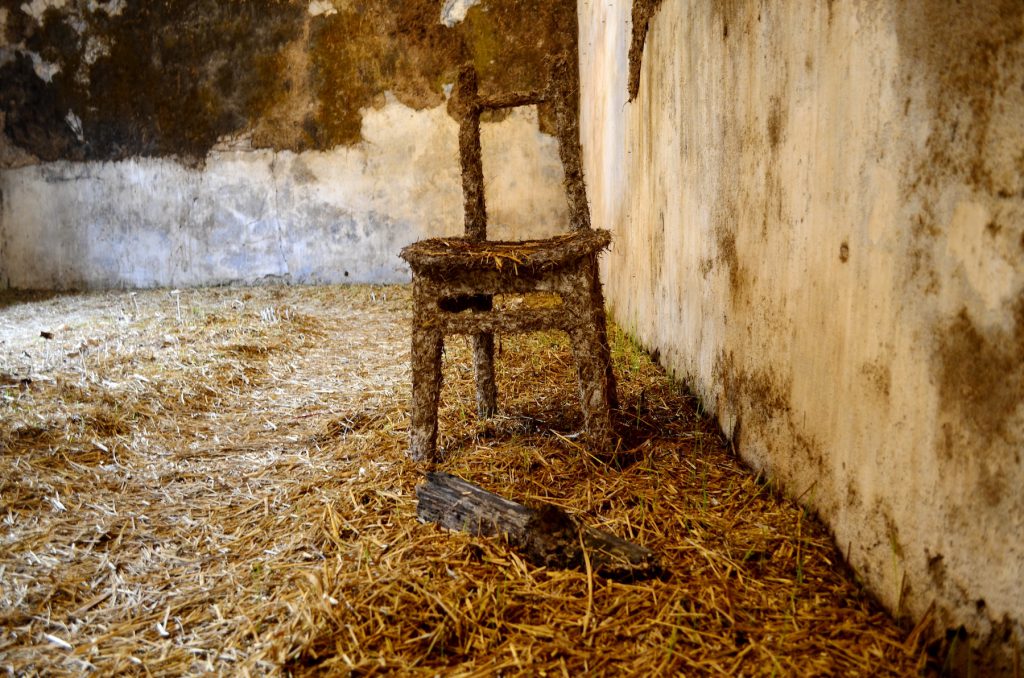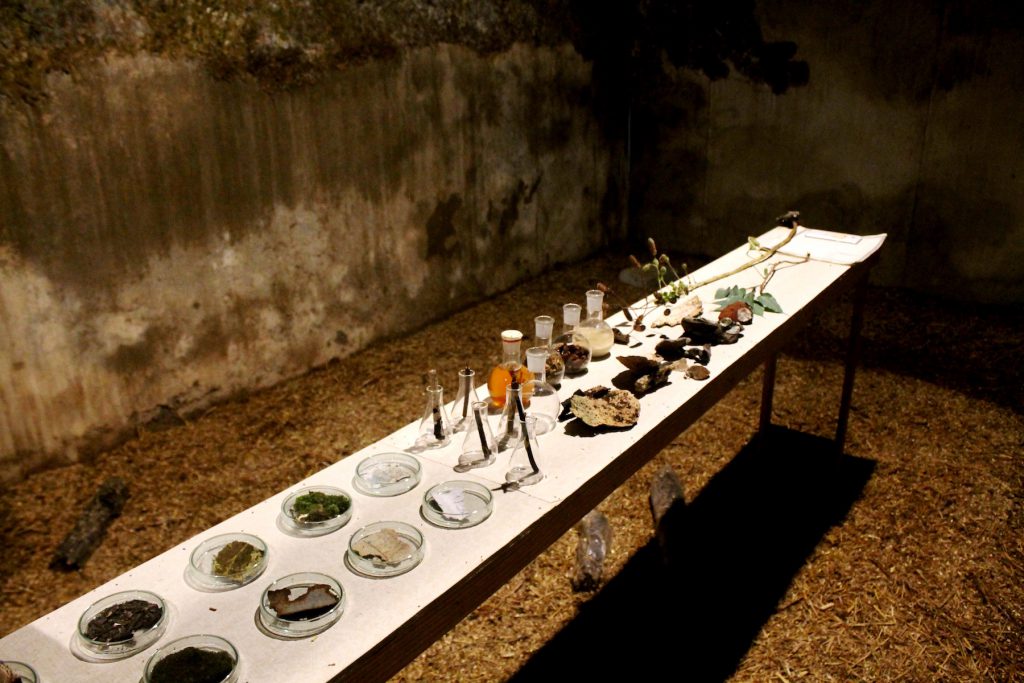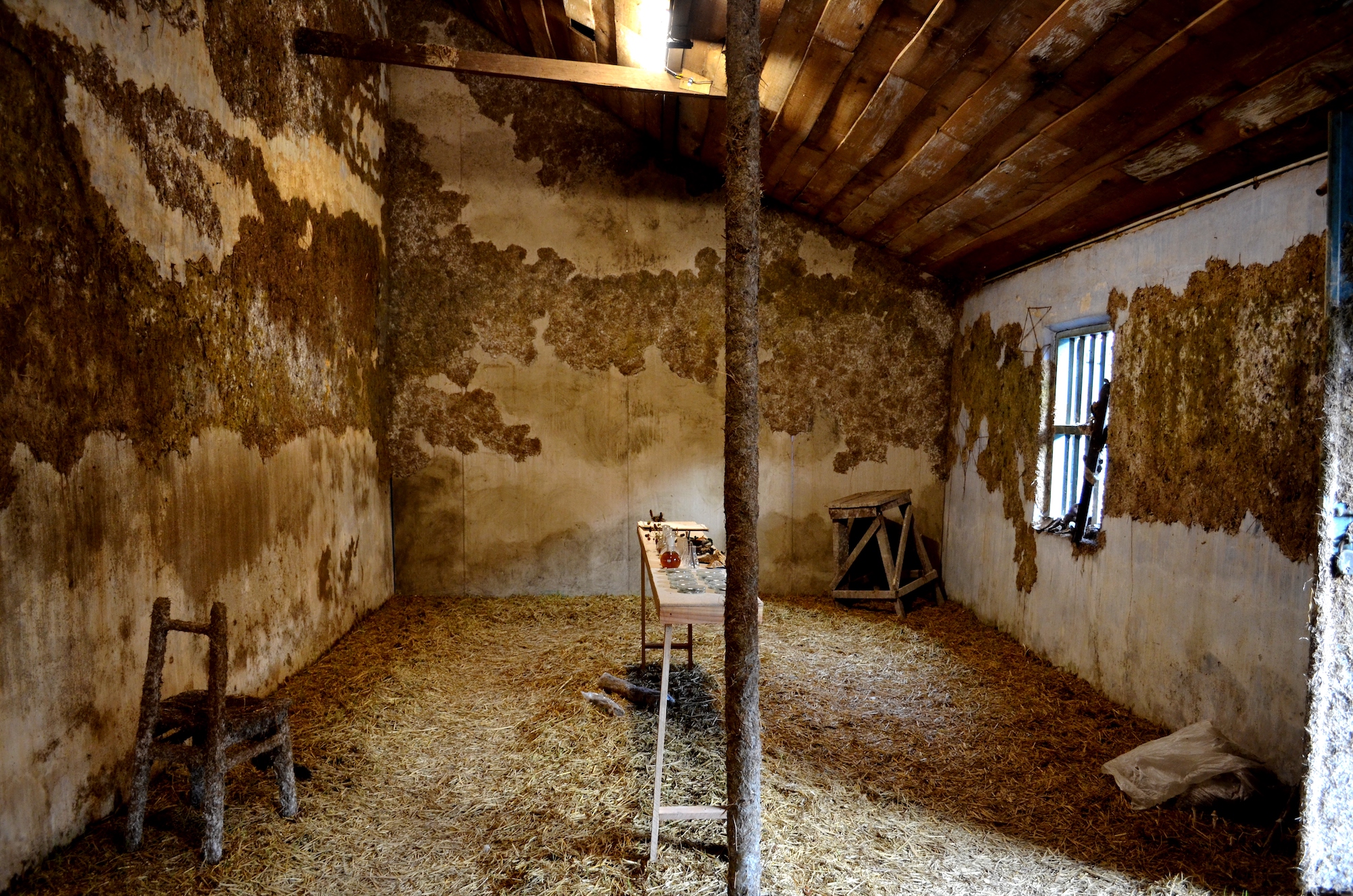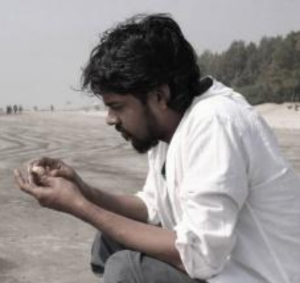‘Nature Unconditioned’ | Kochi, India
An installation by Indian artist Maksud Ali Mondal, at the Kochi Student Biennale, where it is on view until March 29th, claims to present nature in its 'unconditioned' state.

Everything that lives eventually dies. Birth, growth, death and decay. It is a continuous cycle of nature. This process of nature fascinates me, where everything keeps flourishing, changing, rotting, and at last decomposing. My practice is mainly inspired by those natural activities. The process, the organic matter, the ephemeral nature and insubstantiality of materials are the most important aspects of my work.
In the project I created for the Kochi Student Biennale I engaged with the organic system, such as fungal growth, which has a very important role in our ecosystem. Without fungus, valuable nutrients would be locked as natural rubbish, such as dead leaves, fallen trees, and feces. Everything would decay slower, decreasing the nutrients in the soil which plants and animals need to survive.
The way industrial products, constructions and plastic affect the environment, plants and soil are intimately related. It affects even groundwater, the major source of our drinking water; hence affects our food production as well.

I created a space entirely dedicated to the free growth of nature: a damp room, that was once used, but in times abandoned, which I covered entirely with different kinds of mushrooms and fungus. I engaged in a practice that involves a transformation of human inhabitant into a natural inhabitant. The project is mostly an interdisciplinary practice. We don’t usually allow ourselves to embrace nature as it is. We condition it to our own requirements and likings. This is the aspect of nature that I would like to preserve and show, where nature is not conditioned by our own need and liking, but it is left to its own organic growth and supremacy. In the current idea of preservation and protection, we tend to exclude and/or include only certain aspects of nature, and by doing so to make our own version of what nature is.
I wanted to blur the restriction between nature and the conditioned inhabitant that we ourselves create to protect and preserve our way of living. So I created an interaction for those who would walk through the space of the installation and experience the organic space, where the idea of a conditioned nature would be contested throughout the room.

About the Kochi Student Biennale and my experience in it.
This year the Kochi Biennale Foundation announced an open call for art student applicants. It supported the production of all the selected projects by students, where ‘’Making as Thinking’’ was the main idea and focus. It was a great engagement with artists, curators, teachers, local people and with the place, including engagement with the institution, geography, history, landscape, city, and technology. There were 109 projects by 200 student artists.

Participating in it this year was an amazing experience. Each and every day was to be experienced. Once I arrived in Kochi, I started to figure out the materials I needed for my project. Through that, I engaged with the city and local community who helped me to find my materials. I created a site-specific installation in response to the climate of Kochi and that particular site. I was involved in the making process; which took an entire month to execute. This was my first experience working with and seeing the ongoing process of the artists’ biennale and Students’ Biennale together. I would like to thank the Kochi Biennale Foundation, all members, curators, as well as Professor Sanchayan Ghosh, Shruti Ramalingaiah, Krishnapriya CP, Shukla Sawant, KP Reji, MP Nishad and all my friends.
Maksud Ali Mondal is an artist based on West Bengal. He earned his Bachelor’s degree in Fine Arts in painting from Kala Bhavana, Visva Bharati, and is now in his second year of the Master's program. He spent the majority of his time with plantations, outdoors and in the studio. Now he lives in a green place, Santiniketan, surrounded by forests, ponds, fields, and rivers. He builds his work around the reactions of the environment, the weather or such changeable elements.
In his newest body of work, he is creating his own color from minerals, vegetables, leaves, and seeds. The inescapable cycle of nature, growth, birth, and death, existence, and memory is the main focus of his work. The process of making this work also plays an important role in his practice.
His inspiration comes from his own experiences as well as from nature. Now he is working internationally, having visited Paris, Netherlands, Belgium, and Italy for an exchange program and residency.
